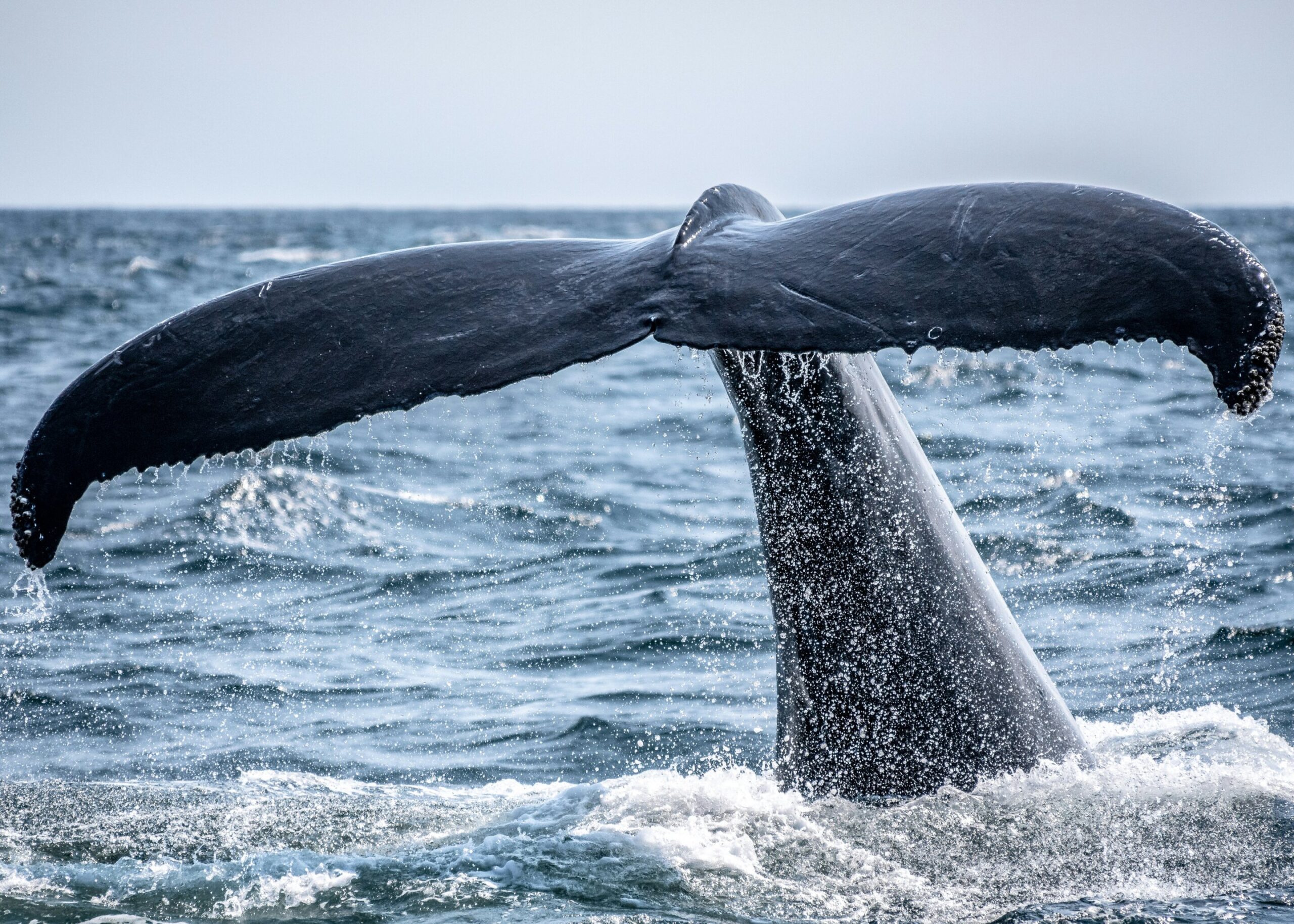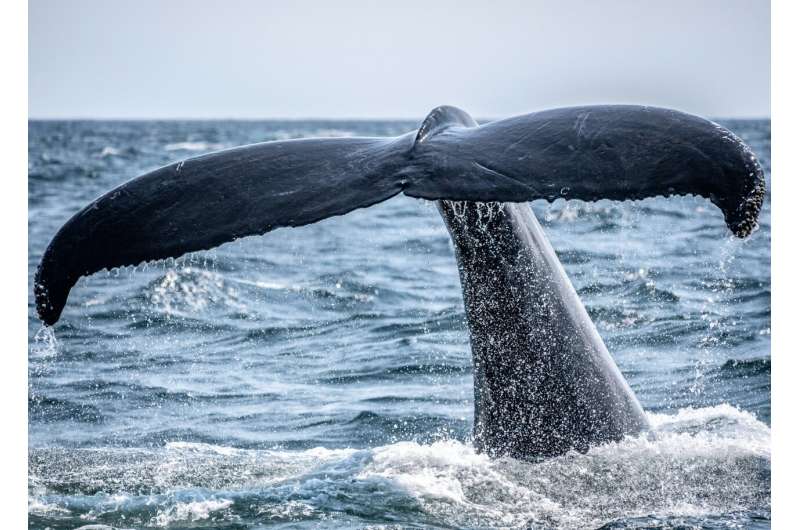

Pregnant North Atlantic right whales will soon begin the long swim from the frigid waters off New England’s shores to the warm calving grounds of Georgia’s coast.
By the time the endangered mammals start arriving in mid-November, the federal government may—or may not—have imposed a revised vessel speed rule meant to protect the mothers and their newborns from boat strikes.
Next month, the Biden administration is expected to give final consideration to a two-year-old proposal to expand a 10-knot speed limit for large vessels operating in the calving grounds on smaller boats 35 feet and longer. Yet as the White House readies to act, a congressional committee recently advanced legislation sponsored by U.S. Rep. Buddy Carter, R-St. Simons Island, meant to halt the speed rule’s implementation.
The House Committee on Natural Resources approved House Resolution 8704 on Sept. 19, making it eligible for a vote before the full House. The legislation would block funding for implementation and enforcement of the speed rule through the end of 2030 and create a grant program to spur new technological developments to help boat captains spot whales and avoid collisions.
“There is technology that exists to track right whales, and we must implement it before endangering boaters’ and harbor pilots’ lives with unworkable speed restrictions. I urge a swift vote on the House floor so we can get these critical safeguards signed into law,” Carter said.
The resolution faces political challenges should it pass the House, at least through the end of 2024. Democrats broadly support the speed rule and the party holds majority control of the U.S. Senate, although that could change in the upcoming election. So could the presidency, as Democrat Joe Biden is not seeking reelection.
Vice President Kamala Harris, a Democrat, is locked in a tight race with the Republican nominee, former President Donald Trump.
Even if Democrats retain power, Carter’s objection to the vessel speed rule is being watched closely by whale advocates. Gib Brogan with Oceana, an environmental group focused on the world’s oceans, labeled efforts to delay the limit’s implementation as “legislative attacks” that could be “disastrous” for the right whales.
“Carter’s bill would pave the way toward extinction for this species,” Brogan said. “More needs to be done and needs to be done immediately. We can’t wait until 2031 to protect the whales from boat strikes.”
Protection vs. balance
Carter’s opposition is grounded in economic concerns. His district stretches the length of the Georgia coast, and his constituents include commercial fishermen and recreational boaters, some of whom would have to abide by the speed limit.
The loudest outcry against the vessel speed rule, though, has come from Georgia Ports Authority officials. The state-run entity operates the third-busiest port in the nation with marine terminals in Savannah and Brunswick. The facilities are economic engines, supporting 561,000 jobs and contributing $59 billion annually to the state’s gross domestic product, a 2022 study showed.
Authority leaders oppose the rule because of the effect it would have on the harbor pilots who bring cargo ships into the port. Those professionals are ferried to and from the freighters on boats that would be subject to the expanded speed rule.
This presents safety concerns—the pilots board the vessels on the open seas within the calving grounds. Pilot boats must typically reach speeds as high as 12 knots to perform the transfer of the captains to and from the cargo ships. The boarding process requires that pilot boats move in quickly beside the freighters, which in rough seas must travel at 8–10 knots to maintain steerage and limit the chance of injury to the pilots.
Should the speed limits be expanded, the pilots have told the ports authority they would refuse to work when seas are rough.
“Operating around the end of the channel at 10 knots or less is a dangerous thing,” said Trey Thompson, president of the Savannah Pilots Association. “You’d be like a cork bobbing around, especially in the wintertime.”
While proponents of the vessel speed rule say exceptions could be made for the pilots, the ports authority remains opposed to the limits. Authority Chief Operating Officer Jamie McCurry warned a House subcommittee of “unintended consequences” during a hearing in June and testified that it is “crucial to find a balanced approach” such as outlined in Carter’s legislation.
Facing extinction
National Oceanic and Atmospheric Administration officials and environmental groups say the expanded speed rule should be put in place before the 2024–2025 calving season begins.
At the June House subcommittee hearing, Evan Howell, director of NOAA’s office of science and technology, testified that the whales’ extinction is imminent and that no technology developed under the House resolution’s grant program could be proved and adopted quickly enough to protect the whales from vessel strikes.
Vessel strikes are a threat to the whales, which can reach 50 feet in length, weigh as much as 70 tons and typically swim just below the ocean’s surface. Researchers estimate 15 right whales have died due to vessel strikes since 2017, with three documented deaths this year. About 360 North Atlantic right whales—and just 70 reproductively active females—remain on Earth.
“As we prepare to enter yet another calving season along Georgia’s coast, we cannot sit idly by as vessel strikes continue to injure and kill our whales at unsustainable levels, like what we saw in 2024,” said Catherine Ridley of One Hundred Miles, a Georgia-focused environmental group.
“Our elected leaders must rely on facts and the best available science now. NOAA’s proposed expansion of its 2008 rule is safe, effective—and urgently needed.”
2024 The Atlanta Journal-Constitution. Distributed by Tribune Content Agency, LLC.
Citation:
Protection decisions loom for endangered North Atlantic right whales (2024, October 3)
retrieved 3 October 2024
from https://phys.org/news/2024-10-decisions-loom-endangered-north-atlantic.html
This document is subject to copyright. Apart from any fair dealing for the purpose of private study or research, no
part may be reproduced without the written permission. The content is provided for information purposes only.